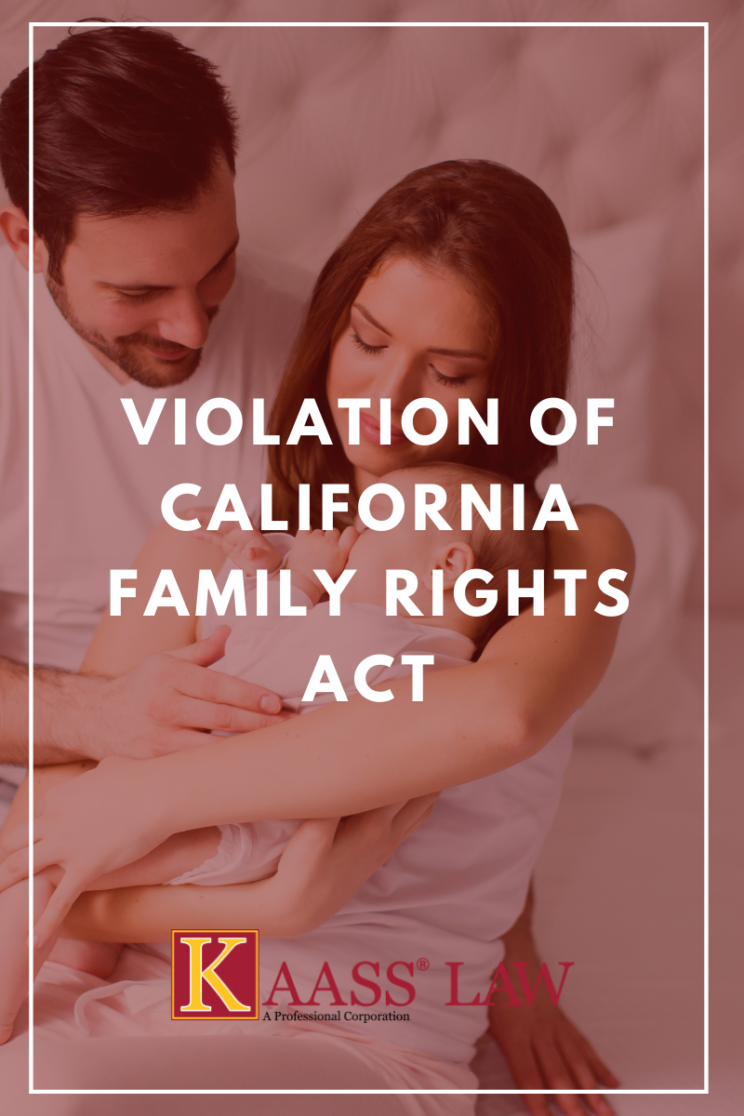The California Family Rights Act (CRFA) has aimed to ensure employees with a right to a temporary leave from employment to care for children and medical needs.
Elements of California Family Rights Act Violations
According to CACI 2600 to establish this claim of refusing to grant family care or medical leave, or refusing to return to the same or a comparable job when the family care or medical leave ended the plaintiff must prove all of the following elements:
- Plaintiff was eligible for family care or medical leave.
- Plaintiff requested or took leave for either of the following reasons: the birth of a child or bonding with the child; for the placement of a child for adoption or foster care; to care for a child, parent, spouse who had a serious health condition; for own serious health condition that made him unable to perform job functions.
- Plaintiff provided reasonable notice to the defendant of the need for family care or medical leave, including its expected timing and length.
- Defendant refused to grant the plaintiff’s request for family care or medical leave, or, refused to return the plaintiff to the same or a comparable job when or otherwise violated CFRA rights.
- As a result of the defendant’s decision, the plaintiff was harmed.
Eligibility for Family Care or Medical Leave
The plaintiff must also prove the following to show the eligibility for family care or medical leave:
- Plaintiff was an employee of the defendant.
- Defendant employed 50 or more employees within 75 miles of the plaintiff’s workplace.
- At the time the plaintiff requested or began the leave, he had more than twelve months of service and had worked at least 1,250 hours during the previous 12 months.
- At the time the plaintiff requested or began the leave he should have taken no more than 12 weeks of family care or medical leave in the 12-month period.
The employee must provide reasonable notice to the defendant of the need for medical leave or family care including its expected timing and length. An employee is required to give their employer 30 days advanced notice of taking family leave.
Benefits of California Family Rights Act
California Family Rights Act leave is generally unpaid leave unless the employee chooses to use sick leave, vacation time, or other paid leave time.
In case CFRA leave is for the employee’s own serious health condition, the employer can require the employee to use accrued leave. Full-time employees can take leave for up to twelve workweeks in a twelve-month period and part-time employees can take leave on a proportional basis. An employee doesn’t need to take leave in one continuous period of time.
Remedies for Violating California Family Rights Act
Employees may be eligible to recover the following types of damages in the state of California:
- Lost wages, employment benefits, and other compensation as a result of the CFRA violation.
- Interest on lost salary lost wages, and other compensation.
- Attorney fees.
- Costs of the lawsuit.
- Equitable or injunctive relief, if appropriate.
Los Angeles Employment Lawyer
If you believe you have been denied a family leave by your employer we invite you to contact our Los Angeles employment lawyer at (310) 943-1171 for a free consultation.

